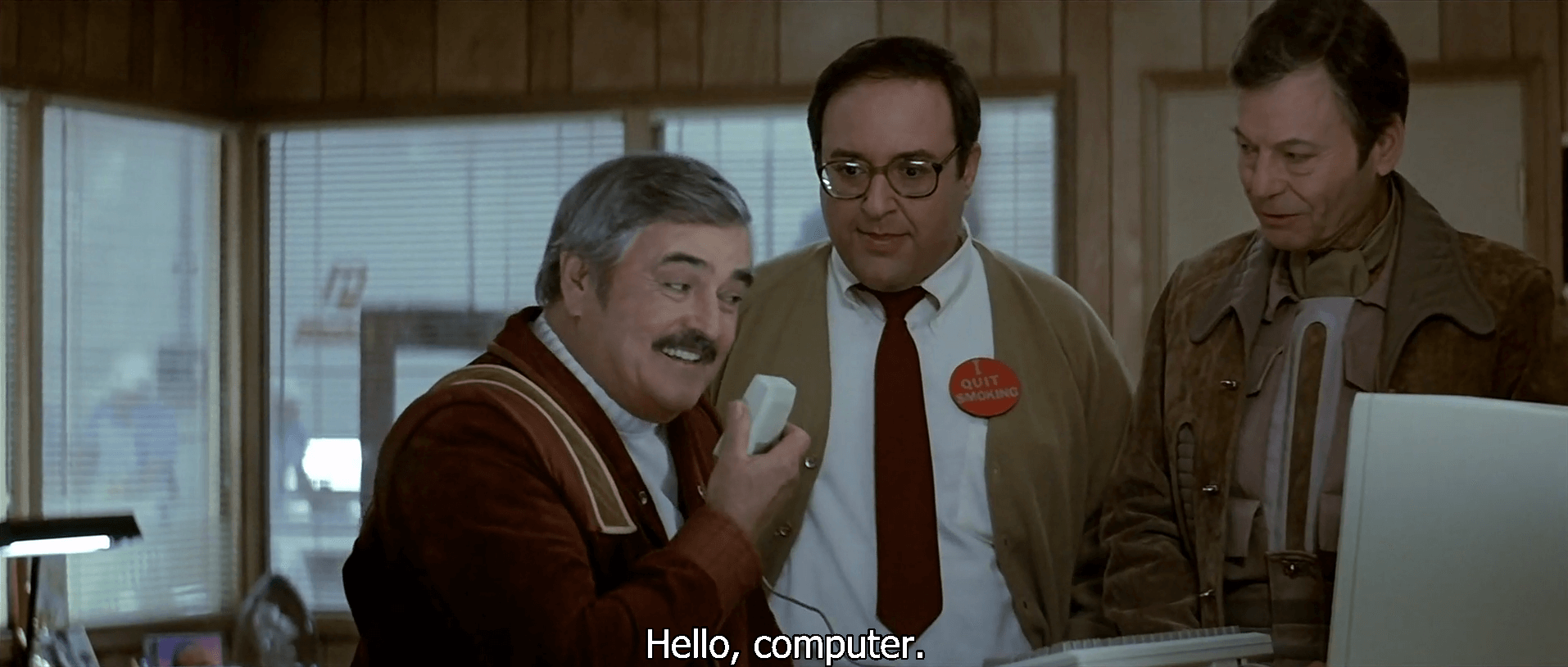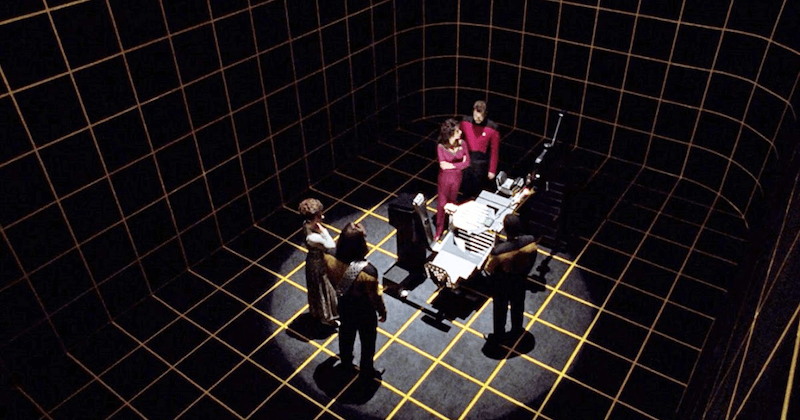Considering Star Trek in the Era of Language Models

Introduction
When I was a kid watching Star Trek: The Next Generation in the 1990s, there were many aspects of the show that resonated strongly with me; competence porn, wholesome examples of managing interpersonal dynamics, third thing; but one of the most futuristic and seemingly magical aspects of the show for me was the way that the crew interacted with the ship's computer. It was always so natural and effective. The computer was always there in the background, ready and waiting to talk through problems and perform work on the crew's behalf.
Examples
Coming for our Jobs
- Asking the computer to collate data on X and speculate about some future state based on that
- Asking the computer to make a program for you vs the auto-complete-ification of programming as a career
Augmented Learning Technology
- Pretty sure there are examples of using the computer for education in trek, but I have to give it more thought
Generative Art, the Holodeck, and Future Games
There's legitimate concern from artists of all sorts that the proliferation of stable diffusion models and other forms of generative art is problematic. From the ethics of training the models by unscrupulously scraping as much human-made content as they could get their hands on, to the typical tech short-sightedness by focusing an incredible amount of research and development effort towards automating human creativity, the one domain which should probably remain sacred.
There's a strong argument to be made that generative art is a really stupid thing to dedicate all this money and effort to while there are so many potentially life changing applications of AI just waiting in the wings. How about working towards automating human drudgery and danger in as many forms as possible; cooking and cleaning, mining and forestry, waste management, etc... There has been some movement in these directions in my lifetime, specifically thinking about things like robot vacuum cleaners, mops, and lawn mowers; and many other applications are currently stymied by the slow progress towards effective robots with a human form factor, but from a purely philosophical perspective it seems to me that the focus here should be on replacing the annoying parts of human life rather than the enriching parts.
All that said, history is full of similar technology-driven transitions that made certain types of work redundant; printing vs manuscripts, electric lights vs chandlers and lamplighters, automobiles and internal combustion engines vs horse grooms and coachmen, modern refrigeration vs icecutters and icehouses, as well as fairly modern examples like telephone operators vs automated routing, or
Star Trek: The Next Generation - S06E25 - Schisms

One of the key scenes in this episode involves Troi, Riker, Worf, Geordi, and a random crew member going into the holodeck to talk through their weird reactions to mundane things in order to try to tease out what their shared cause might be. They spend a bunch of time in this scene prompting the computer to create and refine physical artifacts and sound to try to trigger their memories'. Setting aside how they are being led through this and the fact that in that time hypnotic regression was a way that (hopefully good intentioned) therapists tried to figure out what was going on with people who claimed to have experienced alien abduction and other even more unpleasant trauma, and how malleable human memory is, this is a neat scene that touches on some ways in which generative art has merit.
<aside> I always found it very amusing just how bonkers some of the computer-supplied artifacts were, relative to the crew's requests / descriptions. Like, come on, what's with that metal "table"? </aside>Star Trek: Voyager - S03E25 - Worst Case Scenario
This is a fun episode. It turns out that Tuvok, with typical Vulcan detachment and diligence, created a security training scenario on the holodeck where the Maquis members of the crew have a nice little mutiny. Then, in atypical Vulcan thoroughness, it turns out that he forgot to delete the program (like really delete it rather than leaving it in the recycle bin ♻️) and the nosy diligent B'Ellana stumbles across it while clearing out some disk space. Hilarity ensues.
~30 minutes into the episode, we get some fun technobabble that is suggestive of the sort of interface that future computing systems could have:
"Initialize the holomatrix for the addition of new interactive algorithms, open the parameters file..."
~Janeway maybe?
This brings up all sorts of questions:
- how do they know what voice commands to use?
- it implies a standard format for Holodeck programs
- addition of new interactive algorithms implies that non-interactive content is a distinct category
- narrative parameters file could be something like a weighting for particular "types" of responses from different characters, like personality profiles for different characters (see 'role prompts' like characterhub.org)
At around 37 minutes, Janeway is watching the stuff happening in the holodeck, which brings up some ethical questions in the same ballpark as eye camera in VR headsets, or just the cameras that are ubiquitous in modern society today where we can never really be sure that they're not recording. On the other hand, having an outside party make live edits to a game or story while it is being played is a real thing and a valid mode of social interaction (Dungeons and Dragons, Twitch streams where game randomizers are wired up to audience voting, etc...).
(Star Trek-ish) - Blade Runner 2049 and crafting dreams
...
Conclusion
...
